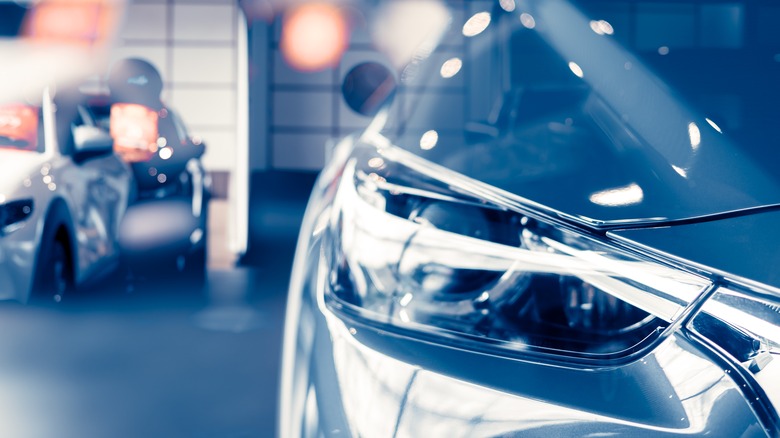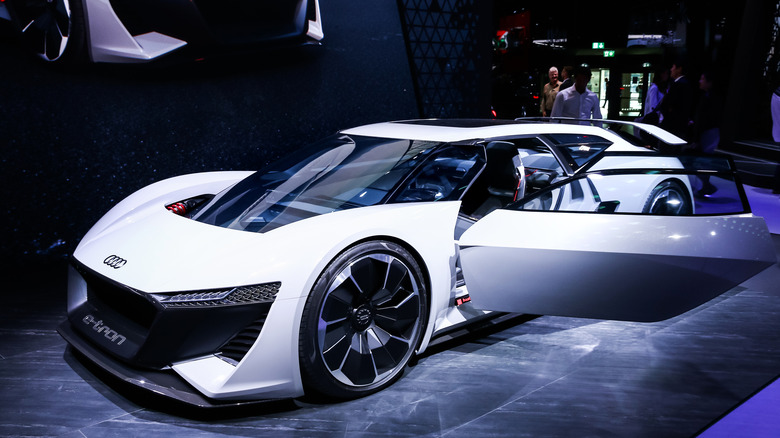The Apple Car Could Cost More Than You Think
Since 2014, under the secretive project codenamed "Titan," Apple has been working on the Apple Car. Conjectures and vague unconfirmed details about the vehicle have only fueled the imagination. The reality is that very little about the Apple Car can be confirmed officially and it has remained mysterious over the past several years. However, some dots can be connected.
For example, Apple has permits from the California DMV to test cars with autonomous technology, as well as patents like the 2018 filing for "a system and method for operating an autonomous vehicle." These documents indicate the company may be going after the "holy grail" of EVs: autonomous driving. Beyond that, rumors say the Apple Car could even lack a steering wheel, hinting that the project may be a fully self-driving vehicle.
According to LeaksApplePro, which has established a solid track record on Apple predictions, the Apple Car could enter mass production in 2025. Considering its history with delays, if Apple does produce the car in 2025, it is highly unlikely the vehicle will arrive without a steering wheel and have full self-driving capabilities. This is primarily because the technology is nowhere near ready to deliver Level 5 autonomous driving. Additionally, while self-driving is not illegal in the U.S., many states have laws that heavily regulate it, requiring rigorous and lengthy safety tests before a model is approved for street use. Despite these uncertainties, there's one thing you can likely bank on: the Apple Car won't be cheap.
Why the Apple Car will likely cost $100,000 or more
LeaksApplePro reports that people should not expect the Apple Car to cost less than $100,000. Apple, like all EV manufacturers, likely wants to give Tesla a run for its money. The latter automaker sells cars that range from the $41,940 entry-level Tesla Model 3 to the $132,940 Tesla Model X Plaid; the company isn't known for making cheap cars and its brand isn't associated with the term "affordable."
One market trend focuses on low-cost, high-performing EVs like the Mini Cooper that sells for $33,900, which after tax credits and incentives can go down to just $25,000 or less. Another trend is the reinvention of the American classic big-car icons, with models like the new EV Hummer or the Ford F-150 Lighting also selling for relatively affordable prices, particularly when you in include the tax credit.
On the flip side is the high-performance luxury segment dominated by Porsche, Mercedes-Benz, Polestar, Audi, Tesla, and others. While these brands do sell affordable models, their top lines are all expensive aspirational products. The 2023 BMW iX M60, for example, sells for $105,100, while the Audi e-tron GT starts at $102,400. Similarly, the 2022 Mercedes-Benz EQS sells for $103,360 and the Polestar 1 goes for $155,000. If Apple belongs to any segment, it is definitely this one, as arguably no other brand is more aspirational in its marketing strategies. It is more than logical to assume the Apple Car will be priced above $100,000 — unless, of course, the company builds two models: one EV for the masses and another to push the limits.

